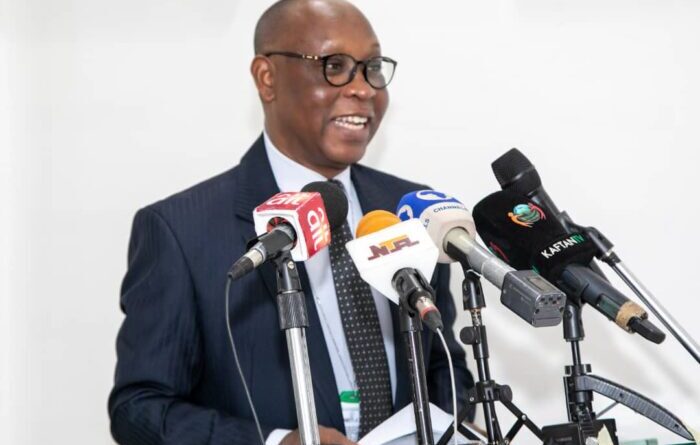NEITI works for economic and social fairness in oil-producing areas.
The Nigeria Extractive Industries Transparency Initiative (NEITI) has repeated its plea for economic, environmental, and social justice for Nigerian host communities of oil, gas, and mining.
Dr. Orji Ogbonnaya Orji, Executive Secretary of NEITI, made the call at the start of the National Extractives Dialogue in Owerri, Imo State, which was conducted by a Civil Society Organisation- Spaces for Change in conjunction with NEITI and the Ford Foundation.
The discussion focused on Host Community Development Trusts (HCDT) as a catalyst for equitable benefit-sharing and long-term prosperity in host communities.
Mrs Obiageli Onuorah, Deputy Director/Head Communications and Stakeholders’ Management at Orji, stated on Friday that the development of host communities requires a unique multi-stakeholder approach.
According to the Executive Secretary of the NEITI, such an approach will draw national and international attention to the specific obligations of extractive firms, governments, Civil Society Organisations (CSOs), development partners, and host communities.
According to him, this will solve development difficulties such as access to education, health care, job opportunities, environmental challenges, and a lack of social infrastructure in oil, gas, and mining host towns.
He recommended leaders of host communities from the South-South and South-East geopolitical zones to alter their lobbying strategy and collaborate with NEITI to resolve their issues through peaceful dialogues based on knowledge, information, data sharing, constructive interactions, and dialogue.
He explained that the 2023 yearly dialogue series would provide a new forum for discussions and constructive debates on how citizens-centered policy interactions would drive the implementation of the HCDT mandated by the Petroleum Industry Act (PIA 2021).
“It is necessary to investigate how the HCDT, as enshrined in the PIA, is being implemented.” What is the framework of governance?
“How inclusive, participatory, and transparent is the process of nominating members to the Board of Trustees, Management Committees, and Advisory Committees,” he asked.
Orji noted that the NEITI’s justifiable interest in collaborating with Spaces for Change, a civil society organisation, was in furtherance of the agency’s collaboration with CSOs to strengthen the implementation of the Extractive Industries Transparency Initiative at the subnational levels.
He urged Nigerian host communities to foster trust and confidence in the management of relationships between host communities, government, and corporations operating in the sector.
Abdulkarim Ahmed, Deputy Chairman of the House Committee on Host Communities, asked for the inclusion of public education, conflict prevention, management, and resolution mechanisms in the execution of the HCDT Fund and guaranteed the National Assembly’s assistance.
Sen. Hope Uzodimma of Imo State, represented by the Commissioner for Petroleum Resources, Prof. Eugene Opara, expressed pleasure with the tone and direction of the debate and pledged the state government’s support.
Uzodimma appreciated the explanation on the oil and gas businesses’ 3% operational costs.
He urged relevant government entities in the implementation sector to invest in public education and community enlightenment.
Mrs Vicotria Ohaeri, the host and Executive Director of Spaces for Change, urged the host communities to organise themselves and take full responsibility of the project.
Ohaeri went on to say that the new legislation’s provisions have shifted host communities away from the period of philanthropic development assistance and towards a new era of entitlements and human rights.
“As a result of the PIA provisions, host communities now have the right to benefit from natural resources.”
“And these benefits are no longer acts of corporate benevolence, but an entitlement to participate in the design, structure, and governance of their own development, as well as the governance and administration of the extractive resources,” she added.
Government agencies from the oil and gas sector, civil society organisations, state government representatives, the media, and development partners all attended the Dialogue.
The Dialogue looked at the fund’s structure, the need for inclusivity in developing the governance system, and the responsibilities of state governments, companies, traditional rulers, host communities, and civil society.




